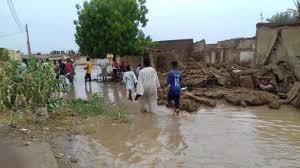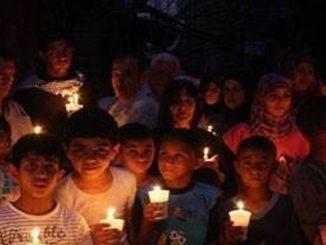
The United Nations has announced that 650,000 persons have been affected by the floods in Sudan, adding that the situation will get worse in the coming days.
The United Nations Office for the Coordination of Humanitarian Affairs (OCHA) said in a statement on Monday evening that “at least 650,000 people have been affected since the start of the rains in Sudan, more than 111,000 in the first week of September alone.”
The statement explained that the government and aid workers are helping 200,000 people in the affected areas, but the unprecedented floods exceeded all estimations, which resulted in a severe shortage of relief supplies allocated by humanitarian organizations to face the crisis.
The statement added that people are in urgent need of shelter, drinking water, non-food items and sanitation services, in addition to the need to prepare for an efficient response to epidemics and contagious diseases which will result from the floods.
The UN agency expected that the situation will deteriorate in the coming days, as heavy rains expected to fall in Ethiopia and parts of Sudan could increase water levels in the Blue Nile, which will intensify the damages.
On Monday, Sudan announced that the number of recorded deaths in the country due to floods had risen to 114 since the beginning of June. Some 83,516 homes have been damaged, including 32,964 houses that were entirely destroyed, and 50,552 houses that were partially damaged. This is in addition to the 43,425 acres of farmland which were damaged and 5,482 heads of livestock which died.
On 5 September, the Sudanese Security and Defense Council declared a national state of emergency for three months and designated the country a natural disaster zone as a result of the floods.
More than half a million people affected
A few days ago, the United Nations Office for the Coordination of Humanitarian Affairs (OCHA) reported that the floods in Sudan have killed 102 people, injured 46 more and affected over 550,000 people in 17 of the country’s 18 states.
“More than half a million people are affected by the floods in Sudan – the highest number of flood-affected people reported in the country in more than two decades,” OCHA indicated.
It added: “Some 102 people have died and 46 others have been injured, according to the latest figures from the government of Sudan. Thus far, 17 of Sudan’s 18 states are affected. Khartoum State is the worst affected, with more than 100,000 people in need of assistance.”
The UN organization continued: “More than 500 square kilometers of land flooded in Khartoum, Al Gezira and White Nile States, and more than 100,000 homes have been destroyed or damaged.”
It warned that: “The situation could deteriorate over the coming days, with heavy rains forecast in Ethiopia and in several parts of Sudan. The rains are likely to increase water levels in the Blue Nile River, which are at the highest they have been in 100 years.”
The Sudanese government has declared a three-month national state of emergency to boost response efforts, stating that the government, UN agencies, NGOs and the Sudanese military are assisting thousands of people in affected areas.
According to OCHA: “There are significant gaps in supplies of shelter, health and water and sanitation hygiene materials.”
“Drainage systems are unreliable as water is stagnant, and access to clean drinking water and sanitation systems has been severely affected,” reported the World Health Organization (WHO) on the situation in Sudan.
“Supplies have been delivered to ensure water quality and infection prevention and control measures are in place in affected areas, as well as supplies to prevent the spread of vector-borne diseases such as dengue, chikungunya, and malaria,” added the WHO.



